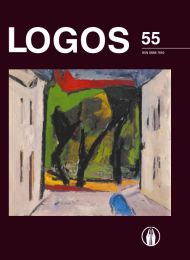Kelyje Į Žmogaus Tobulumą: Spinozos Moralés Filosofija
On the Way to Human Perfection: Spinoza’s moral philosophy
Author(s): Rūta Marija VabalaitėSubject(s): Ethics / Practical Philosophy, Early Modern Philosophy
Published by: Visuomeninė organizacija »LOGOS«
Keywords: freedom; necessity; idea; emotion; good; natural right;
Summary/Abstract: An article deals with ethical thought of Benedict Spinoza. Morality and ethics is a concern of Spinoza most in his work “Ethics” some ideas are in “Theologico-Political Treatise” and in “Political Treatise”. The ideas of morality and religion, morality and state, good and evil, the power of emotions and reason and the concept of freedom are studied. He relates all our emotions to pleasure, pain and desire. These emotions result from the mind’s inadequte knowledge and determination by external forces. The emotions arise in accordance with universal and necessary laws, like everything else in nature. These laws concern the mind in so far as it is partial or inadequate cause of its affections. So we need to ground our cognition in adequate ideas in oder to attain freedom. Freedom is explaned as capasity to act rather than to be governed by the passions. The good is identified with what is useful to preserve one’s being and the bad with what is harmful for this matter. Virtue is directly correlated whith knowledge. On the one part through understanding our passions and their causes we are able to gain some control over them. On the other part our happiness is manifested essentially in the exercise of reason.
Journal: LOGOS - A Journal of Religion, Philosophy, Comparative Cultural Studies and Art
- Issue Year: 2008
- Issue No: 55
- Page Range: 24-33
- Page Count: 10
- Language: Lithuanian

